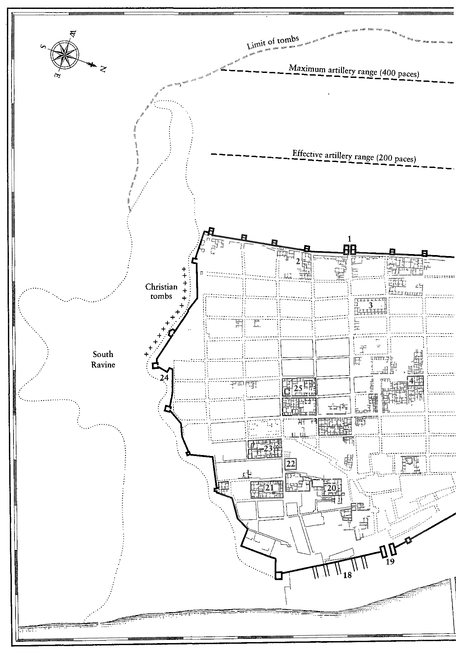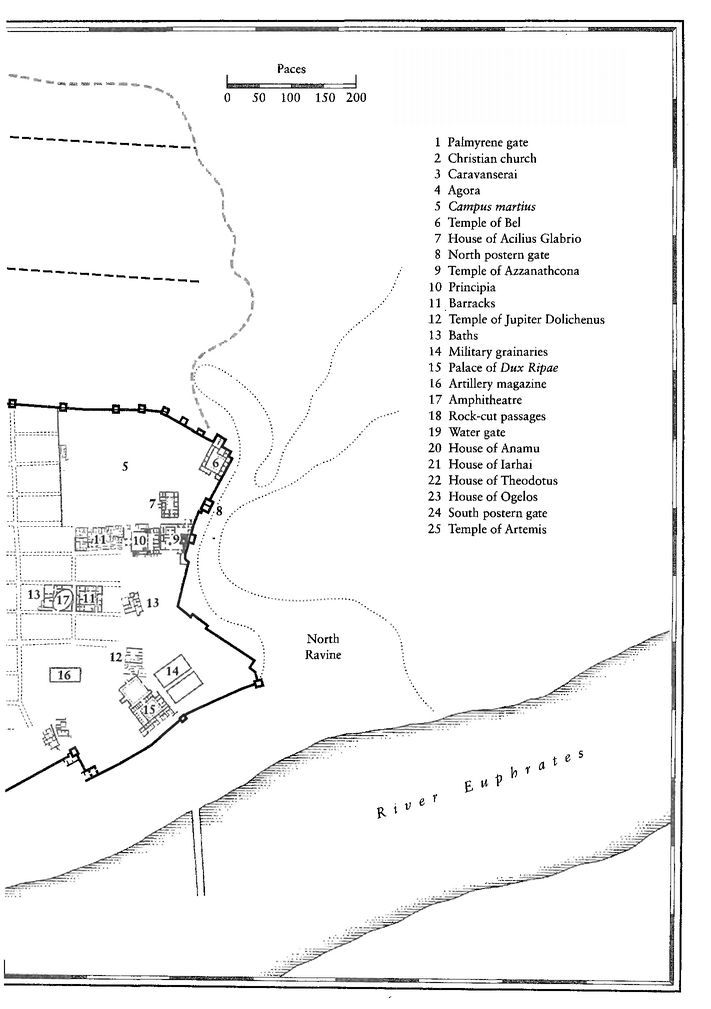Fire in the East
Authors: Harry Sidebottom


Table of Contents

This edition first published paperbck in the United States in 2009 by
The OverlookPress, Peter Mayer Publishers, Inc.
141 Wooster Street
New York, NY 10012
141 Wooster Street
New York, NY 10012
All rights reserved. No part of this publication may be reproduced or
transmitted in any form or by any means, electronic or mechanical, including
photocopy, recording, or any information storage and retrieval system now
known or to be invented, without permission | in writing from the publisher,
except by a reviewer who wishes to quote brief passages in connection with
a review written for inclusion in a magazine, newspaper, or broadcast.
transmitted in any form or by any means, electronic or mechanical, including
photocopy, recording, or any information storage and retrieval system now
known or to be invented, without permission | in writing from the publisher,
except by a reviewer who wishes to quote brief passages in connection with
a review written for inclusion in a magazine, newspaper, or broadcast.
Cataloging-in-Publication Data is available from the Library of Congress
eISBN : 978-1-590-20366-8
6 5
To Frances, Lisa, Tom and Jack Sidebottom

The Voyage of the
Concordia
and the Itinerary of the
Dux Ripae
Concordia
and the Itinerary of the
Dux Ripae


City of Arete

‘And let them, when besieging a fortress, strive to win over
whomsoever possible of those inside the fortress and the city, in order
to attain through them two things: one - the drawing out of their
secrets, and the other - intimidating and frightening them through
themselves. And [let] a man be sent by underhand means who should
unsettle their minds, and deprive them of any hope for succour, and
who should tell them, that their sly secret is unravelled, and that tales
are told about their fortress, and that fingers are pointed at their
fortified and weak places and at the places against which battering-rams
will be directed, and at the places where mines will be conducted, and
at the places where ladders will be placed, and at the places where the
walls will be ascended, and at the places where fire will be set - in order
that all these should fill them with terror...’
whomsoever possible of those inside the fortress and the city, in order
to attain through them two things: one - the drawing out of their
secrets, and the other - intimidating and frightening them through
themselves. And [let] a man be sent by underhand means who should
unsettle their minds, and deprive them of any hope for succour, and
who should tell them, that their sly secret is unravelled, and that tales
are told about their fortress, and that fingers are pointed at their
fortified and weak places and at the places against which battering-rams
will be directed, and at the places where mines will be conducted, and
at the places where ladders will be placed, and at the places where the
walls will be ascended, and at the places where fire will be set - in order
that all these should fill them with terror...’
translation James [2004], 31
Prologue (Summer AD238)
War is hell. Civil war is worse. This civil war was not going well. Nothing was going to plan. The invasion of Italy had ground to a halt.
The troops had suffered crossing the Alps before the spring sunshine had melted the snows in the passes. They had expected to be welcomed as liberators. They had been told that they only need set foot in Italy for everyone to come running, holding out olive branches, pushing forward their children, begging for mercy, falling at their feet.
It had not happened as they had hoped. They had come down from the mountains into an empty landscape. The inhabitants had fled, taking with them everything that they could move. Even the doors of their houses and temples were gone. The normally bustling plains were deserted. As the soldiers passed through the city of Emona the only living thing they found was a pack of wolves.
Now the army had been camped for over a month outside the walls of the north Italian city of Aquileia. The legions and auxiliaries were hungry, thirsty and tired. The hastily improvised supply chain had broken down. There was nothing to be had locally. What the citizens had not gathered within the walls, the soldiers themselves had wasted when they first arrived. There was no shelter. All the buildings in the suburbs had been torn down to provide materials for siege works. The river was polluted with the corpses of both sides.
The siege was making no progress. The walls could not be breached; there were not enough siege engines, the defenders were too effective. Each attempt to storm the walls with siege ladders and mobile towers ended in bloody failure.
Yet you could not fault the big man’s courage. Every day the Emperor Maximinus Thrax would ride around the town, well within bowshot range of the enemy, calling out encouragement to his men in the siege lines. As he passed through the ranks he promised them the town and everyone in it to do with as they pleased. While his courage had never been in doubt, his judgement had always been suspect. Now with every new reverse he became more savage. Like a wounded animal or, as many said, like the half-barbarian peasant he would always remain, he struck out at those around him. The officers who led the doomed attempts to scale the wall were executed in ever more inventive ways. Especial ingenuity was reserved for those from the nobility.
Ballista was even more hungry, thirsty and dirty than most. He was a tall youth, only sixteen winters and over six foot, and still growing. No one felt the lack of food more keenly than he did. His long blond hair hung lank down his back. A residual squeamishness held him back from washing on the riverbank. Since yesterday, a smell of burning, a reek of charred flesh, had joined the other odours which hung about him.
Despite both his youth and his status as a diplomatic hostage for his tribe, it had been considered by everyone the right thing that one of his birth, one of the Woden-born, should lead one of the units of German irregulars. The Romans had calculated the height of the wall, they had issued ladders of the correct length and, with Ballista at the front, the five hundred or so expendable barbarians had been sent off. The men had advanced at a jog, bent forward into the storm of missiles. The large bodies of the Germans and their lack of armour had made them good targets. Again and again there was a sickening sound as a missile struck home. They had fallen in droves. The survivors had pushed on in brave style. Soon the smooth walls had towered above them. More had fallen as they put aside their shields to raise the ladders.
Ballista had been one of the first to mount. He had started to climb one-handed, his shield held above him, his sword still in its scabbard. A falling stone had hit the shield, almost knocking him off the ladder. The noise was indescribable. He saw a long pole appear over the wall and push out over the next ladder along. At the end of the pole was a large amphora. Slowly the pole was turned, the amphora tipped, and a flaming mixture of pitch and oil, sulphur and bitumen poured like rain on to the men on the ladder. Men screamed, their clothes burning and shrinking, clinging to them, their flesh roasting. One after another they fell from the ladder. The incendiary liquid splashed out over those at its foot. They beat at the flames with their hands, rolled themselves on the ground. There was no way to put out the flames.
When Ballista looked up there was another amphora above his head, its pole beginning to turn. With no hesitation Ballista threw himself from the ladder. He landed hard. For a moment he thought that his ankle was broken or turned and that he would be burnt alive. But self-preservation had overcome the pain and, yelling for his men to follow him, he ran away.
Ballista had been thinking for some time that a conspiracy was inevitable. Impressed as he was by Roman discipline, no body of fighting men would put up with this siege for long. And after the disaster that day, he had not been surprised when he was approached.
Now, as he waited to play his part, he realized the depth of his fear. He had no wish to play the hero. Yet he had no real choice. If he did nothing, either Maximinus Thrax would execute him or the conspirators murder him.
Other books
The Telling by Alexandra Sirowy
Time Travel Romances Boxed Set by Claire Delacroix
Women and Other Monsters by Schaffer, Bernard
Their Virgin Mate [Panther Cove 5] (Siren Publishing Ménage Everlasting) by Melody Snow Monroe
You Are My Heart and Other Stories by Jay Neugeboren
Hidden Prey (Lawmen) by Cheyenne McCray
The Detention Club by David Yoo
The Shakespeare Stealer by Gary Blackwood
The War for Late Night by Carter, Bill
Underworld by Meg Cabot